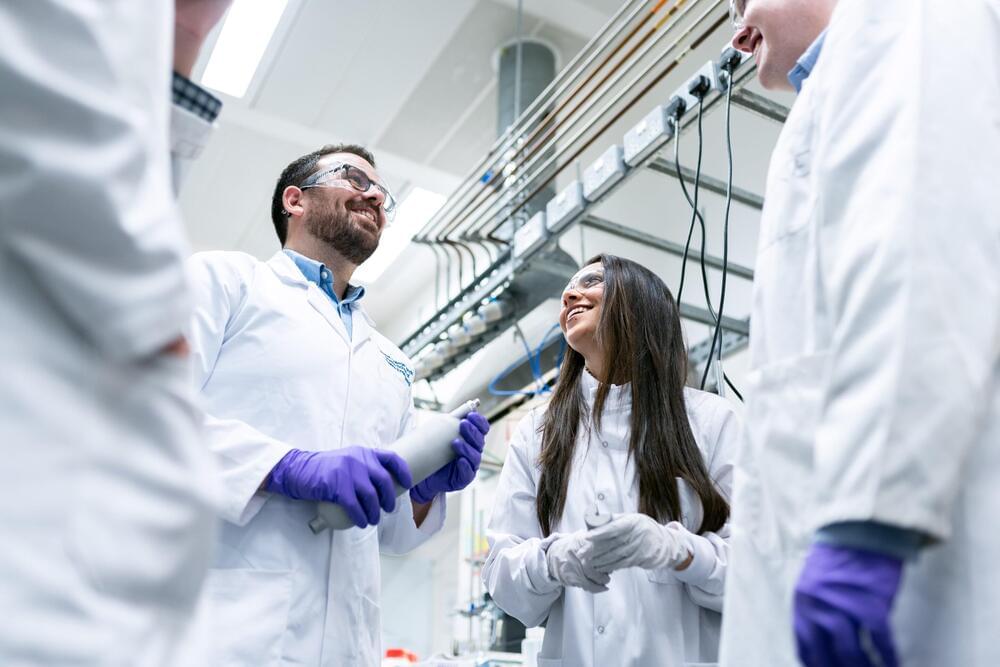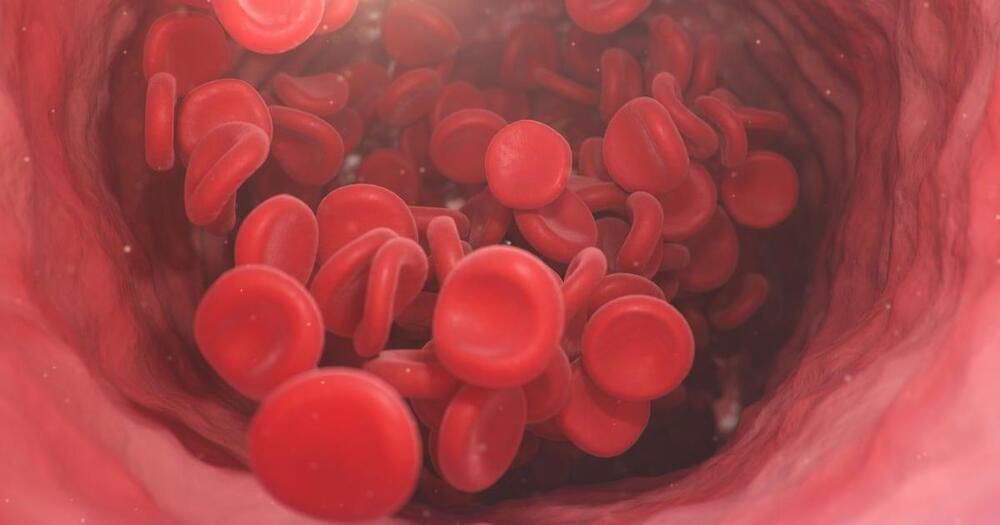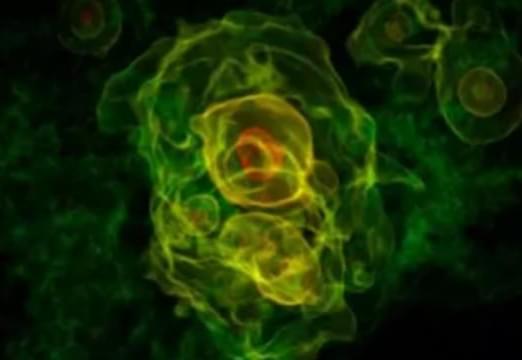
Category: science – Page 68


A Decade of Science and Trillions of Collisions Show the W Boson Is More Massive Than Expected — A Physicist Explains What It Means
“You can do it quickly, you can do it cheaply, or you can do it right. We did it right.” These were some of David Toback opening remarks when the leader of Fermilab’s Collider Detector unveiled the results of a decade-long experiment to measure the mass of a particle known as the W boson.
I am a high energy particle physicist, and I am part of the team of hundreds of scientists that built and ran the Collider Detector at Fermilab in Illinois – known as CDF.
After trillions of collisions and years of data collection and number crunching, the CDF team found that the W boson has slightly more mass than expected. Though the discrepancy is tiny, the results, described in a paper published in the journal Science on April 7, 2022, have electrified the particle physics world. If the measurement is indeed correct, it is yet another strong signal that there are missing pieces to the physics puzzle of how the universe works.

Survey: Trust in science is high, but misinformation is a threat
Trust in science is rising worldwide, according to a 3M-backed survey released Tuesday, and more people expect it to solve the world’s problems.
But the fifth annual 3M State of Science Index also showed many are worried that misinformation could lead to more public health crises, greater societal divisions and lack of action on climate change.
“It’s really good to see that trust in science is high, and that’s true in America and around the world, but misinformation threatens scientific credibility,” Jayshree Seth, 3M’s corporate scientist and chief science advocate, said in an interview. “It’s not simply a matter of communicating facts, data and evidence. We need to build that relationship with the public.”

7 Programming Languages to Use in Data Science
With the constant evolution of data science, you need to be skilled in cutting-edge technologies in the field. In this article, we will look at the top programming languages used in data science.
Data has become enormously valuable in the last decade.
Every big company out there has valuable data that, with the help of a good data scientist, can benefit the way they do their business. In other cases, pinpoint strategies that may not be working that well.

What Your Blood Type Means For Heart Health, According to Science
People with type O-blood are considered “universal donors” because their blood doesn’t have any antigens or proteins, meaning anybody’s body will be able to accept it in an emergency.
But why are there different blood types? Researchers don’t fully know, but factors such as where someone’s ancestors are from and past infections which spurred protective mutations in the blood may have contributed to the diversity, according to Dr. Douglas Guggenheim, a hematologist with Penn Medicine. People with type O blood may get sicker with cholera, for example, while people with type A or B blood may be more likely to experience blood clotting issues. While our blood can’t keep up with the different biological or viral threats going around in real time, it may reflect what’s happened in the past.
“In short, it’s almost like the body has evolved around its environment in order to protect it as best as possible,” Guggenheim says.

A Novel Science of Consciousness: Towards the Cybernetic Theory of Mind
In our own not-so-distant future we’ll witness the emergence of synthetic superintelligence as a new kingdom of life. Whether that will happen in 5 or 50 years doesn’t really matter, we are firmly on the path of facilitating its emergence — synthetic intelligence is an extension of us, natural intelligence, the future version of ourselves. On a long billions-of-years evolutionary journey from the first primordial prokaryote to a Solaris-like planetary mind, we’re merely years away from this cardinal metamorphosis.
#CyberneticTheoryofMind #consciousness #evolution #mind
“Consciousness cannot be accounted for in physical terms. For consciousness is absolutely fundamental. It cannot be accounted for in terms of anything else. ―Erwin Schrödinger.

A decade of science and trillions of collisions show the W boson is more massive than expected — a physicist on the team explains what it means for the Standard Model
“You can do it quickly, you can do it cheaply, or you can do it right. We did it right.” These were some of the opening remarks from David Toback, leader of the Collider Detector at Fermilab, as he announced the results of a decadelong experiment to measure the mass of a particle called the W boson.
I am a high energy particle physicist, and I am part of the team of hundreds of scientists that built and ran the Collider Detector at Fermilab in Illinois – known as CDF.
After trillions of collisions and years of data collection and number crunching, the CDF team found that the W boson has slightly more mass than expected. Though the discrepancy is tiny, the results, described in a paper published in Science on April 7, 2022, have electrified the particle physics world. If the measurement is correct, it is yet another strong signal that there are missing pieces to the physics puzzle of how the universe works.

